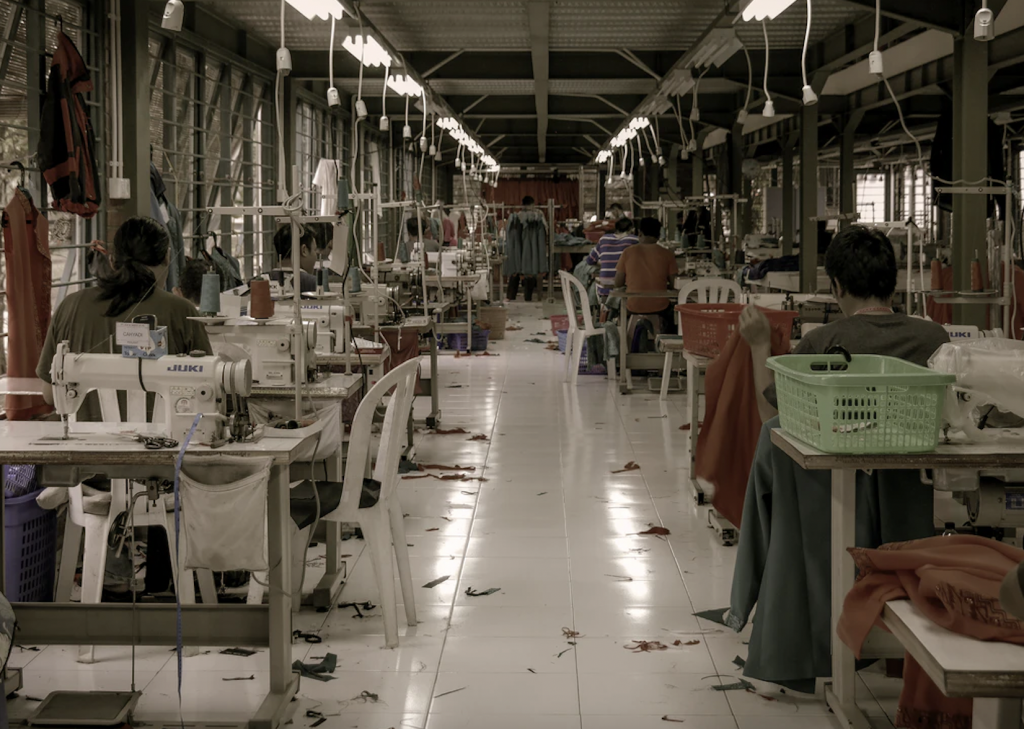An updated version of the Bangladesh Accord will get a two-year term, following months-long back-and-forth between international brands and retailers, and local trade unions, in furtherance of the aim of “working towards a safe and healthy garment and textile industry in Bangladesh.” Primarily governing factories producing Ready-Made Garments, such as those used by H&M and Zara’s parent company Inditex, which have signed on to the latest version of the pact, the newly-adopted agreement extends the Accord, which was originally formed on the heels of the deadly collapse of the Rana Plaza factory in Dhaka, Bangladesh in April 2013.
Slated to take effect on September 1 and remain in force for just over two years, the newly-named International Accord for Health and Safety in the Textile and Garment Industry “contains many of the hallmarks of the original [accord], including the ability to subject retailers to legal action if their factories fail to meet labor safety standards,” according to the New York Times’ Elizabeth Paton. Specifically, the new pact continues to emphasize “respect for freedom of association, independent administration and implementation, a high level of transparency, provisions to ensure remediation is financially feasible, Safety Committee training and worker awareness program, and a credible, independent complaints mechanism,” the Accord asserts on its website.
The original Accord boasted some 200 signatories, with the follow up “transition” agreement in 2018 drawing the support of upwards of 50 signatories across the globe, ranging from American Eagle and Tommy Hilfiger and Calvin Klein-owner PVH to ASOS, Mango, and H&M, among others.
Beyond upholding principles from the previous agreements, new features have been added to the most recent version of the pact, including commitments “to focus on the health and safety program in Bangladesh, and on building a credible industry wide compliance and accountability mechanism, and expand the work of the International Accord based on feasibility studies,” an “option to expand the scope of the agreement to address human rights due diligence, and an optional streamlined arbitration process to enforce the Accord’s terms.”
To date, Accord-specific dispute resolutions have been handled by way of a two-step dispute system, in which claims were “first heard by a committee comprised of representatives from global trade unions and brands and chaired by a representative from the International Labor Organization.” After that, “Parties wishing to appeal the committee’s decisions can do so before the Permanent Court of Arbitration in The Hague,” according to Freshfields Bruckhaus Deringer LLP attorneys Boris Dzida, Satya Staes Polet, Jean-François Gerard and Ludovica Mascaretti.
In connection with that system, two arbitration proceedings were initiated in 2016 by IndustriALL and UNI, trade union-parties to the Accord, which alleged that unnamed fashion retailers that were also members of the Accord had breached the tenets of the agreement by failing to compel their suppliers to improve the safety of their factories within the mandatory deadlines and failing to help cover the costs to do so. The Permanent Court of Arbitration for The Hague (“PAC”) revealed in July 2018 that these two landmark proceedings had been officially resolved. According to the PAC, the fashion brands had met “all terms of the settlements, including paying more than $2.3 million towards remediating unsafe conditions in Bangladesh ready-made garment factories,” a sum that would be distributed to the eligible factories.
It is worth noting that in furtherance of the proceedings and subsequent settlements, the PAC shot down the unions’ request to publicly identify the brands and suppliers at issue. The PAC held that the names of these brands must remain confidential and that only limited information on the procedure and its progress would reach the public domain, in accordance with Article 19 of the Bangladesh Accord, which requires the Accord’s Steering Committee to publish and regularly update information on progress under the Accord, but also states that information linking specific brands to specific suppliers will be kept confidential. The new International Accord maintains similar confidentiality language, stating that, among other things, “information linking specific companies to specific factories will be kept confidential.”
Speaking about the settlements at the time, Christy Hoffman, General Secretary of UNI Global Union, stated, “These cases prove the Accord’s power to hold companies accountable and make work safer across the supply chain.” Jenny Holdcroft, Assistant General Secretary of IndustriALL Global Union, echoed that sentiment, asserting that “prior to the Accord, a settlement of this size and scope on supply chain worker safety was unthinkable.”
At the same time, the settlement has prompted lawyers for brands to caution their clients about the potential for liability. “Companies that are considering signing the new [2018] agreement – either because they are original signatories or would like to get involved now – should take note of the potentially far-reaching impact of commitments undertaken under the Accord and of a recent decision by the PAC confirming the binding effect of the commitments and the Accord’s own ground-breaking dispute resolution mechanism,” Herbert Smith Freehills LLP attorneys Patricia Nacimiento, Antony Crockett and Alessandro Covi stated.
In furtherance of the arbitration model set out in the new pact, the International Accord states that the Steering Committee will adopt a new “Dispute Resolution Process to specify the timelines and procedures involved when disputes are presented to [it], with the aim to establish a fair and efficient process.” Until a new process is adopted, the Committee “shall follow the timelines and procedures established under the 2013 Bangladesh Accord for resolving disputes.”
In all likelihood, and given the rising importance of ESG, including in the apparel space, the Accord’s Committee very well may see an increasing number and variety of labor and other ESG-related disputes. “To date, some experts have questioned whether arbitration is the appropriate forum to resolve such disputes,” per Nacimiento, Crockett and Covi, who note that “it remains essential that arbitrators and arbitration counsel become more familiar with ESG regulation and standards and respond proactively to adopt appropriate arbitration procedures for ESG-related disputes, [as] this will help to ensure that arbitration remains an effective forum for resolving disputes in this fast-growing area.”











